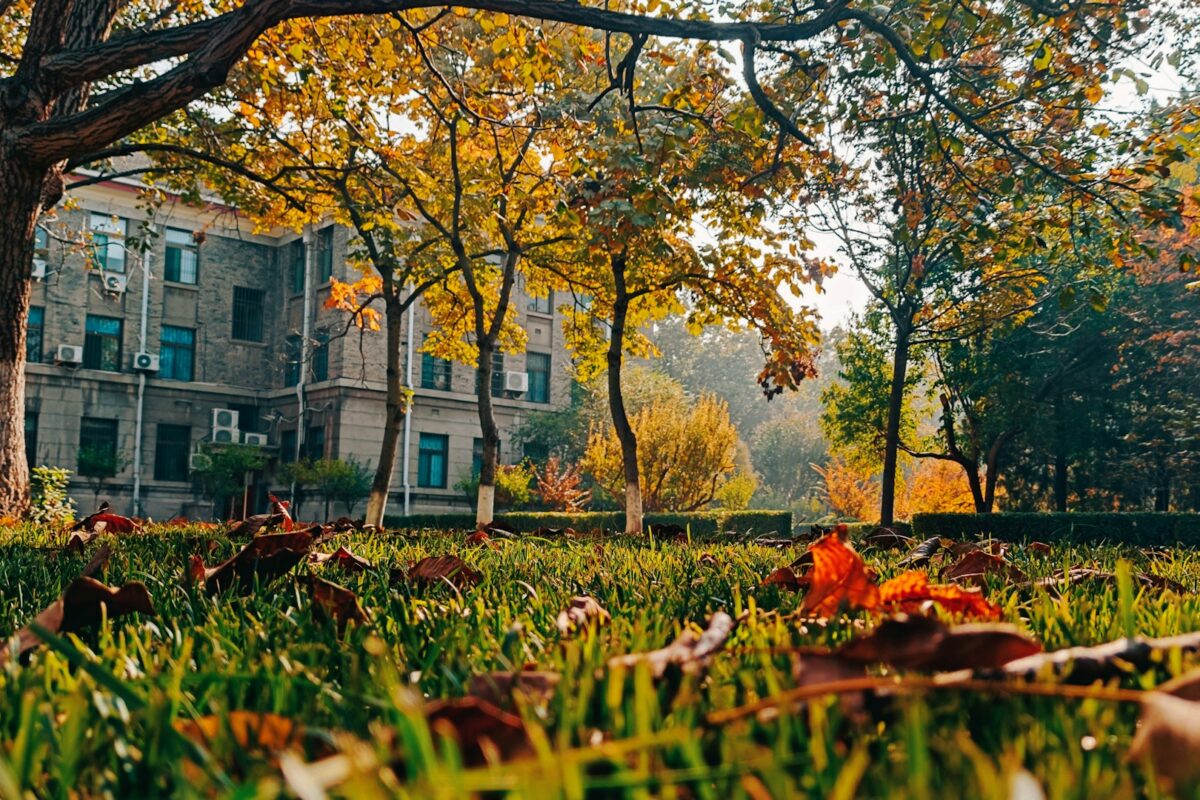Key Takeaways:
- Maintain a healthy, vibrant garden by prioritizing fall yard cleanup.
- Learn the best practices for leaf removal, pruning, and soil health.
- Understand how proper preparation can lead to a more beautiful spring garden.
Why Fall Yard Cleanup Matters
As the crisp autumn air sets in, it’s time to think about fall yard cleanup. This crucial task sets the stage for a vibrant spring garden. A thorough fall cleanup enhances the aesthetic appeal of your garden and promotes healthier plant growth. Ignoring this essential step can lead to problems such as pest infestations, mold, and the weakening of plants due to the harsh winter conditions. Addressing these issues in the fall ensures your garden remains in the best possible condition year-round.
Leaf Removal
One of the most essential steps in fall yard cleanup is leaf removal. Leaving piles of leaves on your lawn can lead to dead grass and fungal diseases. Use a rake or leaf blower to clear the leaves, ensuring your lawn breathes throughout winter. According to The Old Farmer’s Almanac, removing leaves helps prevent moisture buildup, which can harm your grass. Additionally, wet leaves can create a slippery surface, posing a safety risk. Consider using the collected leaves as compost or mulch, turning a potential problem into a beneficial resource for your garden soil.
Pruning and Trimming
Pruning dead or overgrown branches is another critical component of fall yard cleanup. This practice helps your plants conserve energy and promotes new growth in the spring. Aim to prune any damaged or diseased branches first, then shape your shrubs and trees for better structure and airflow. Using the right pruning procedures may guarantee that your plants grow stronger and healthier while also halting the spread of illness. Furthermore, trimming can improve the way your yard looks overall, keeping it tidy and well-kept during the winter.
Soil Health
A flourishing garden depends on maintaining the health of the soil. Compost or other organic matter can be added to your soil in the fall. In addition to increasing its nutrient content, this guarantees robust plant growth the next season. Research from Better Homes & Gardens suggests that fall soil preparation can significantly impact the vitality of your plants. Testing your soil’s pH levels during this period can also provide insights into what amendments might be necessary. A well-prepared soil bed allows for better water retention and root support, critical for the coming chilly months.
Mulching
Applying a layer of mulch around your plants helps retain moisture, suppress weeds, and protect roots from harsh winter temperatures. Use organic mulches like shredded leaves, straw, or wood chips to add beneficial nutrients to the soil as they decompose. Mulching acts as an insulating blanket, protecting plant roots from the freeze-thaw cycles that can cause soil to heave and disrupt roots. By retaining moisture, mulch also reduces the need for frequent watering, which is particularly beneficial during the drier winter months.
Garden Bed Cleanup
Remember to clean up your garden beds. Remove annual plants that have completed their lifecycle and consider planting cover crops to improve soil structure and fertility. Clearing debris from your beds helps prevent pests and diseases from overwintering your garden. It’s also a great time to divide perennials to promote healthier future growth. Ensure you also remove invasive weeds that could spread and take over in the spring. With a clean slate, your garden is better prepared to flourish when the new growing season begins.
Planning for Spring
Lastly, take this time to plan for spring gardening. Assess your garden layout, decide what plants to add, and start collecting seeds. Proper planning ensures you hit the ground running when the warmer months arrive. Make a list of spring-blooming bulbs you can plant in the fall. Fall is also an excellent time to sharpen your garden tools and repair damaged equipment. This pre-planning effort pays off when you can focus immediately on planting and nurturing your garden come spring, without delays.
In Summary
Fall yard cleanup is more than just tidying up leaves and branches; it’s about setting a strong foundation for the coming seasons. Following these tips on leaf removal, pruning, soil health, mulching, and garden bed cleanup will ensure a healthier, more beautiful garden year-round. Remember that a little effort in the fall can lead to significant rewards in the spring, making your garden the envy of the neighborhood.




